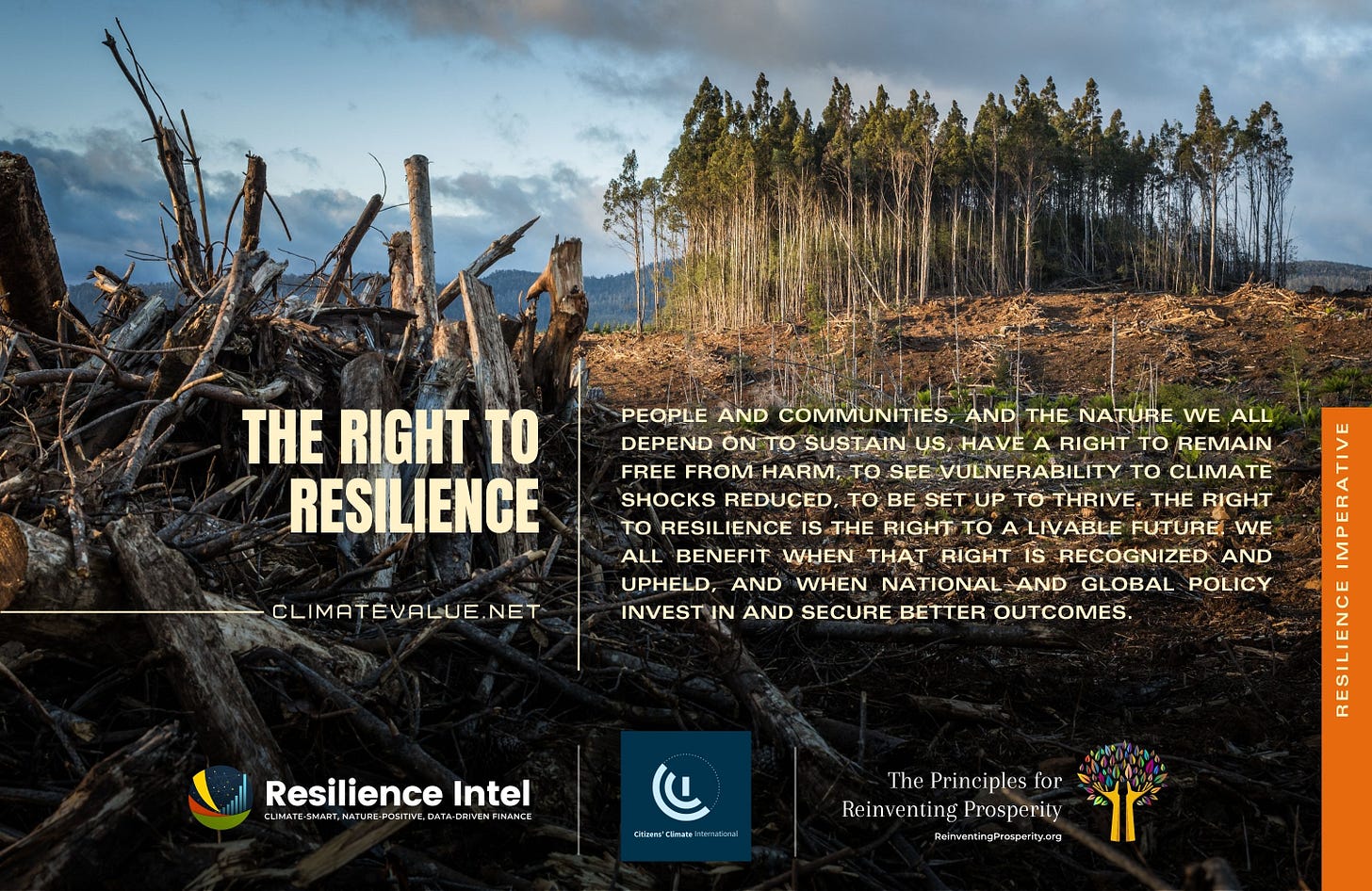Right to Resilience report outlines steps needed to preserve a livable future for everyone
The 2023 Reinventing Prosperity report focuses on The Right to Resilience as a golden thread that can reset the baseline for all our climate ambitions & get us to a climate-secure future.
DEC. 8, 2023 — Every human being has the right to a livable future, but for much of the world that right is being violated and threatened by the persistent worsening of climate change. A new report from Citizens’ Climate International — The Right to Resilience — outlines the steps and transformations needed to preserve a livable world for all people.
One of the biggest transformations needed is the way the world grows and delivers food to people. To that end, CCI is co-hosting a side event at COP28 to report on progress toward establishment of a Good Food Finance Facility that will provide funding for healthy, sustainable food systems. Scheduled to start operations in 2024, the Facility will serve as both a coordinating mechanism and a mechanism for delivery of finance for food systems transformation.
The CCI report highlights a startling finding of the State of the Climate Report, which suggests a deeply altered future scenario for human civilization:
“By the end of this century, an estimated 3 to 6 billion individuals — approximately one-third to one-half of the global population — might find themselves confined beyond the livable region, encountering severe heat, limited food availability, and elevated mortality rates because of the effects of climate change (Lenton et al. 2023).”
“We need to be clear,” the CCI report says, “that in a world where most people experience unlivable conditions, there will be unprecedented migration, unprecedented disruption of everyday institutions, unprecedented levels of competing-interest confrontations between people not equipped to solve everything for everyone; these are the ingredients of conflict and global destabilization. Climate risk is not only about a marginal loss of steadily increasing value, as many still imagine it to be; climate risk is the risk of persistent, pervasive destabilization, and all the harm and cost that would follow.”
Pulling together data from a number of sources, the Right to Resilience report concludes that not honoring that right to a livable future will have unbearable costs: At 3C of warming, most coastal cities and low-lying island nations will disappear; the hidden costs of our current food systems, accumulated since signing of Paris Agreement in 2016, now exceeds $42 trillion; melting of permafrost will release methane that drives temperatures higher; mass migrations will destabilize countries and lead to conflict.
The CCI report suggests, considering the costs of inaction, it is clearly in the interests of all nations to:
Decarbonize as quickly as possible, while fostering inclusive, climate-resilient, and sustainable human development;
Rapidly scale up investments in practices that protect and restore nature, and build ecological resilience;
Rapidly scale up investments in coordinated adaptation and resilience measures that support everyday human security and prosperity;
Treat resilience as a universal right, and a core measure of legitimacy, and incentivize all industries and trading partners to do the same.
“At Citizens’ Climate International, we say that a livable future is a human right, a right that all people are entitled to—not just people who, by accident of birth, live in places yet to be devastated by climate change,” said Joe Robertson, CCI Executive Director. “Our world cannot have one set of values for people who live in affluent countries and another set of values for people living in nations that are struggling. A civilization operating under such an ethos is like a business with two sets of books: illegitimate and primed for collapse.”
For press inquiries
Contact Steve Valk: steve@citizensclimate.org; 404-769-7461
CCI COP28 Resources
2nd CCI dispatch from COP28 (end of Week 1)
Follow all CCI COP28 activities at cci2040.org
Get CCI briefing notes at cciblue.com
Further Background
Roadmap for achieving net-zero emissions in global food systems by 2050
Resilience Intel – mapping the landscape of needed innovations in policy, finance, and data, to achieve a climate-smart future



